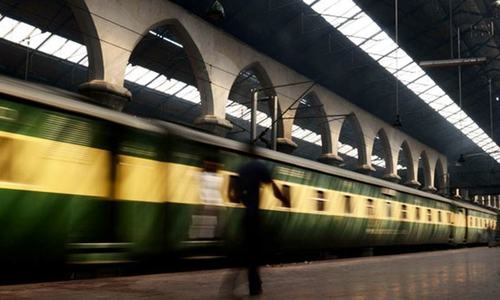Railways Minister Khawaja Saad Rafique on Wednesday said political instability in the country was the main reason behind a decline in foreign investments.
"Those who want to help us are disturbed due to the prevailing situation. People will only help us when we achieve political stability," Rafique said while briefing the Senate's Standing Committee on Pakistan Railways.
"If we hold a circus on daily basis then it would become difficult for our well-wishers to make investments," he said.
"I have felt that China had been reluctant to invest in the country," he shared, adding that the PML-N government was successful in bringing foreign investments only after a lot of struggle and hard work.
The minister expressed concern over the lack of investment in railways sector and said Pakistan Railways badly needed investments to stay relevant and running.
We want China to provide us longterm loans against a minimal markup but China wants to lend us on a mix basis, Rafique told the committee, adding that "Pakistan will not opt for a loan from China it appears useless."
The minister said he observed in the GCC meeting that Chinese investors were concerned regarding the prevailing scenario in Pakistan. "How will investors come to Pakistan in absence of political stability?"
Talking about Karachi Circular Railway (KCR) project, the minister said that the ministry was in contact with the Sindh government. Rafique said no decision should be taken in haste on the project. We want to lay the foundation stone of the project after streamlining all required issues, he added.
Subsequently, while talking to media, the minister said the sit-in politics has ruined the state's structure. He said that question marks on the democratic system will put investments in jeopardy. If the episode continues, it will harm the economy of the country. He accepted that there were weaknesses in the structure of civil administration.
"Personally, I have a lot of relevant information. The civilian government discussed the matter with the military leadership to avoid bloodshed," he said.
"While placing them on backfoot, we should not expect performance from those supposed to safeguard the interests of the state," Rafique said in a veiled reference to the objections being raised on the role of police and civil administration in connection with the Faizabad sit-in.
Extraordinary measures are needed to eliminate discord and unrest, he remarked. "Some will endorse our [approach in this] decision [on sit-in agreement] and others will not," he said, adding that drawing room discussions are easy but facing real issues is difficult.
Talking about the situation in Lahore, he vowed to resolve the issue of Lahore sit-in in an appropriate manner. He further said that Rana Sanaullah has explained his viewpoint several times.














































